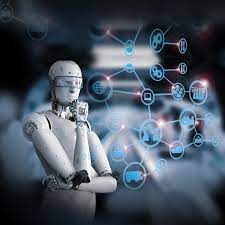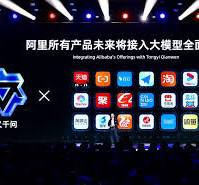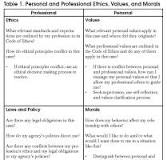The Transformative Power of Artificial Intelligence Technology
Artificial Intelligence (AI) technology is revolutionizing the way we live, work, and interact with the world around us. From healthcare to transportation, AI is enhancing efficiency and enabling new possibilities across various sectors. This article explores the transformative power of AI technology and its implications for the future.
What is Artificial Intelligence?
Artificial Intelligence refers to the simulation of human intelligence processes by machines, especially computer systems. These processes include learning, reasoning, problem-solving, perception, and language understanding. AI technologies are designed to perform tasks that typically require human intelligence.
Key Areas of AI Technology
Machine Learning
Machine learning is a subset of AI that focuses on building systems that can learn from data and improve their performance over time without being explicitly programmed. It enables computers to find patterns in large datasets and make predictions or decisions based on those patterns.
Natural Language Processing (NLP)
NLP allows machines to understand and interpret human language as it is spoken or written. This technology powers applications like voice assistants, chatbots, and translation services, making interactions between humans and machines more natural and intuitive.
Computer Vision
Computer vision enables machines to interpret and make decisions based on visual data from the world around them. This technology is used in facial recognition systems, autonomous vehicles, medical imaging analysis, and more.
The Impact of AI on Various Industries
Healthcare
In healthcare, AI is improving diagnostics accuracy through image analysis tools that can detect diseases at an early stage. It also powers personalized medicine by analyzing patient data to recommend tailored treatment plans.
Transportation
The transportation industry is being transformed by autonomous vehicles that use AI for navigation and safety features. These advancements promise to reduce traffic accidents and improve efficiency in logistics operations.
Finance
AI algorithms are widely used in finance for fraud detection, risk management, algorithmic trading, and customer service automation through virtual assistants.
The Future of Artificial Intelligence
The future of AI holds immense potential but also presents challenges such as ethical considerations regarding privacy and job displacement due to automation. As AI continues to evolve rapidly, it will be crucial for policymakers, businesses, and society at large to navigate these challenges responsibly while harnessing the benefits that this transformative technology offers.
In conclusion, artificial intelligence technology is reshaping our world in profound ways by enhancing capabilities across diverse fields. Its continued development promises exciting advancements that could lead us into a new era where intelligent systems complement human efforts more seamlessly than ever before.
Top 5 Benefits of Artificial Intelligence: Boosting Efficiency, Decision-Making, Personalization, Safety, and Innovation
- Enhances efficiency by automating repetitive tasks and streamlining processes.
- Improves decision-making through data analysis and predictive modeling.
- Enables personalized experiences in various applications, such as healthcare and e-commerce.
- Enhances safety by powering autonomous systems like self-driving cars and industrial robots.
- Fosters innovation by enabling the development of new products and services that were previously unimaginable.
**”7 Key Concerns About Artificial Intelligence Technology: Privacy, Jobs, Bias, and More”**
- Privacy concerns related to data collection and surveillance by AI systems.
- Potential job displacement as automation replaces certain human tasks.
- Bias in AI algorithms leading to discriminatory outcomes, especially in areas like hiring or lending decisions.
- Lack of transparency and interpretability in complex AI models, making it difficult to understand how decisions are reached.
- Security vulnerabilities that could be exploited by malicious actors to manipulate AI systems for harmful purposes.
- Overreliance on AI technology may lead to reduced human decision-making skills and critical thinking abilities.
- Ethical dilemmas arising from the use of AI in sensitive areas such as autonomous weapons or healthcare decision-making.
Enhances efficiency by automating repetitive tasks and streamlining processes.
Artificial intelligence technology significantly enhances efficiency by automating repetitive tasks and streamlining processes, allowing businesses and individuals to focus on more complex and creative endeavors. By taking over mundane tasks such as data entry, scheduling, and basic customer service inquiries, AI systems reduce the time and effort required for these activities, leading to increased productivity. This automation not only minimizes human error but also ensures that operations run smoothly and consistently. In various industries, from manufacturing to finance, AI-driven solutions optimize workflows by analyzing patterns and making real-time adjustments, ultimately saving resources and improving overall performance. As a result, organizations can allocate their human workforce to higher-value tasks that require critical thinking and innovation.
Improves decision-making through data analysis and predictive modeling.
Artificial intelligence technology significantly enhances decision-making by leveraging advanced data analysis and predictive modeling capabilities. By processing vast amounts of data at high speed, AI can identify patterns and trends that might be invisible to the human eye. This allows organizations to make more informed decisions based on accurate forecasts and insights. For instance, in business, AI-driven analytics can optimize supply chain operations by predicting demand fluctuations, while in healthcare, predictive models can assist in diagnosing diseases earlier by analyzing patient data for risk factors. Ultimately, AI empowers decision-makers with precise information, enabling them to take proactive steps and make strategic choices with greater confidence.
Enables personalized experiences in various applications, such as healthcare and e-commerce.
Artificial intelligence technology significantly enhances personalized experiences across various applications, tailoring services to meet individual needs and preferences. In healthcare, AI-driven systems analyze patient data to provide customized treatment plans, predict potential health issues, and suggest preventative measures, thereby improving patient outcomes and satisfaction. Similarly, in e-commerce, AI algorithms track user behavior and preferences to offer personalized product recommendations, optimize pricing strategies, and enhance customer service interactions. This level of personalization not only boosts user engagement and satisfaction but also drives efficiency by ensuring that resources are allocated effectively according to individual requirements. As a result, AI’s ability to deliver tailored experiences is transforming how industries operate and interact with their customers.
Enhances safety by powering autonomous systems like self-driving cars and industrial robots.
Artificial intelligence technology enhances safety by powering autonomous systems such as self-driving cars and industrial robots. These AI-driven systems are equipped with advanced sensors and algorithms that enable them to make split-second decisions based on real-time data, thus reducing the risk of human error and improving overall safety in transportation and industrial settings. By constantly analyzing their surroundings and adapting to changing conditions, AI-powered autonomous systems have the potential to significantly decrease accidents and improve efficiency in various sectors, ultimately creating a safer environment for both workers and the general public.
Fosters innovation by enabling the development of new products and services that were previously unimaginable.
Artificial intelligence technology fosters innovation by providing the tools and capabilities necessary to develop new products and services that were once beyond imagination. By leveraging AI’s ability to process vast amounts of data and identify patterns, businesses can uncover insights that lead to groundbreaking innovations. For instance, AI-driven analytics can reveal consumer preferences and trends, enabling companies to create personalized products that cater to individual needs. Additionally, AI’s predictive capabilities allow for the design of smarter systems in fields like healthcare, where early diagnosis and customized treatment plans become possible. This technological advancement not only accelerates product development cycles but also opens up entirely new markets, driving economic growth and transforming industries in ways previously thought unattainable.
Privacy concerns related to data collection and surveillance by AI systems.
Artificial intelligence technology, while offering numerous benefits, also raises significant privacy concerns, particularly regarding data collection and surveillance. AI systems often require vast amounts of data to function effectively, leading to the collection of personal and sensitive information from users. This data can be used to train algorithms for improved accuracy in tasks such as personalized recommendations or facial recognition. However, the extensive gathering and storage of such information pose risks to individual privacy. There is a potential for misuse or unauthorized access to this data, leading to surveillance practices that infringe on personal freedoms. Moreover, without stringent regulations and transparency from organizations handling AI systems, individuals may have little control over how their data is used or shared, further exacerbating privacy concerns in an increasingly digital world.
Potential job displacement as automation replaces certain human tasks.
The rise of artificial intelligence technology brings with it the potential for significant job displacement, as automation increasingly takes over tasks traditionally performed by humans. Industries such as manufacturing, retail, and transportation are particularly vulnerable, with machines and algorithms capable of performing repetitive or routine tasks more efficiently and at a lower cost. This shift could lead to reduced demand for certain types of labor, resulting in job losses and economic disruption for workers who may find their skills outdated in an AI-driven market. While AI has the potential to create new job opportunities in emerging fields, the transition period poses challenges for workers who need to adapt and acquire new skills to remain relevant in a rapidly changing workforce landscape. Addressing these challenges requires proactive measures, such as investment in education and retraining programs, to ensure that the benefits of AI are shared widely across society.
Bias in AI algorithms leading to discriminatory outcomes, especially in areas like hiring or lending decisions.
Bias in AI algorithms is a significant concern, as it can lead to discriminatory outcomes, particularly in sensitive areas like hiring and lending decisions. These biases often stem from the data used to train AI systems, which may reflect historical prejudices or societal inequalities. When such biased data is utilized, AI models can inadvertently perpetuate or even exacerbate existing disparities. For instance, an AI system used for hiring might favor candidates from certain demographic groups if it has been trained on data that reflects past hiring practices skewed against minorities or women. Similarly, in lending, biased algorithms could result in unfair credit assessments for certain communities. Addressing these biases requires a concerted effort to ensure diverse and representative datasets and to implement fairness-focused methodologies in AI development.
Lack of transparency and interpretability in complex AI models, making it difficult to understand how decisions are reached.
One significant drawback of artificial intelligence technology is the lack of transparency and interpretability in complex AI models, often referred to as “black box” systems. These models, particularly deep learning algorithms, can process vast amounts of data and make decisions with high accuracy, but they do so in ways that are not easily understood by humans. This opacity poses challenges in critical areas such as healthcare, finance, and criminal justice, where understanding the rationale behind an AI’s decision is crucial for ensuring fairness, accountability, and trust. Without clear insights into how these systems operate and reach conclusions, it becomes difficult to identify biases or errors that could lead to unintended consequences or reinforce existing inequalities. As AI continues to integrate into various aspects of society, addressing this issue becomes essential for building systems that are not only effective but also transparent and accountable.
Security vulnerabilities that could be exploited by malicious actors to manipulate AI systems for harmful purposes.
Artificial intelligence technology, while offering numerous benefits, also presents significant security vulnerabilities that can be exploited by malicious actors. As AI systems become more integrated into critical infrastructure and everyday applications, the risk of these systems being manipulated for harmful purposes increases. Hackers could potentially alter algorithms or data inputs to cause AI systems to behave unpredictably or make incorrect decisions, leading to severe consequences in sectors like healthcare, finance, and transportation. For instance, an attacker could manipulate an autonomous vehicle’s AI system to cause accidents or disrupt traffic flow. Additionally, AI-powered cybersecurity tools themselves might be targeted and compromised, turning them into vectors for further attacks. Addressing these vulnerabilities requires robust security measures and continuous monitoring to ensure that AI technologies remain safe and trustworthy.
Overreliance on AI technology may lead to reduced human decision-making skills and critical thinking abilities.
Overreliance on artificial intelligence technology poses the risk of diminishing human decision-making skills and critical thinking abilities. As AI systems become increasingly integrated into daily tasks and decision-making processes, there is a tendency for individuals to defer to these technologies rather than engaging in independent analysis and problem-solving. This reliance can lead to a decline in essential cognitive skills, as people may become less accustomed to assessing complex situations, weighing options, and making informed decisions without the aid of AI. The convenience and efficiency offered by AI can inadvertently create a dependency that undermines the development and maintenance of human intellectual capabilities, ultimately impacting creativity, innovation, and adaptability in various fields.
Ethical dilemmas arising from the use of AI in sensitive areas such as autonomous weapons or healthcare decision-making.
The use of artificial intelligence in sensitive areas like autonomous weapons and healthcare decision-making presents significant ethical dilemmas. In the realm of autonomous weapons, AI systems capable of making life-and-death decisions without human intervention raise concerns about accountability, the potential for misuse, and the escalation of conflicts. Similarly, in healthcare, AI-driven decision-making can lead to ethical issues related to patient privacy, consent, and the potential for biased algorithms that might result in unfair treatment or discrimination. These challenges necessitate careful consideration and regulation to ensure that AI technologies are developed and deployed responsibly, with a focus on safeguarding human rights and ethical standards.



